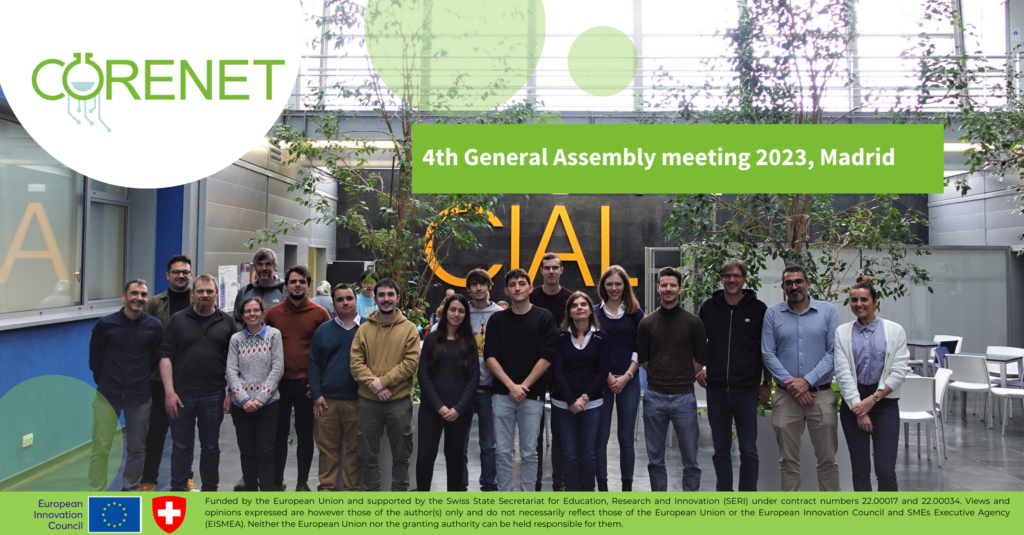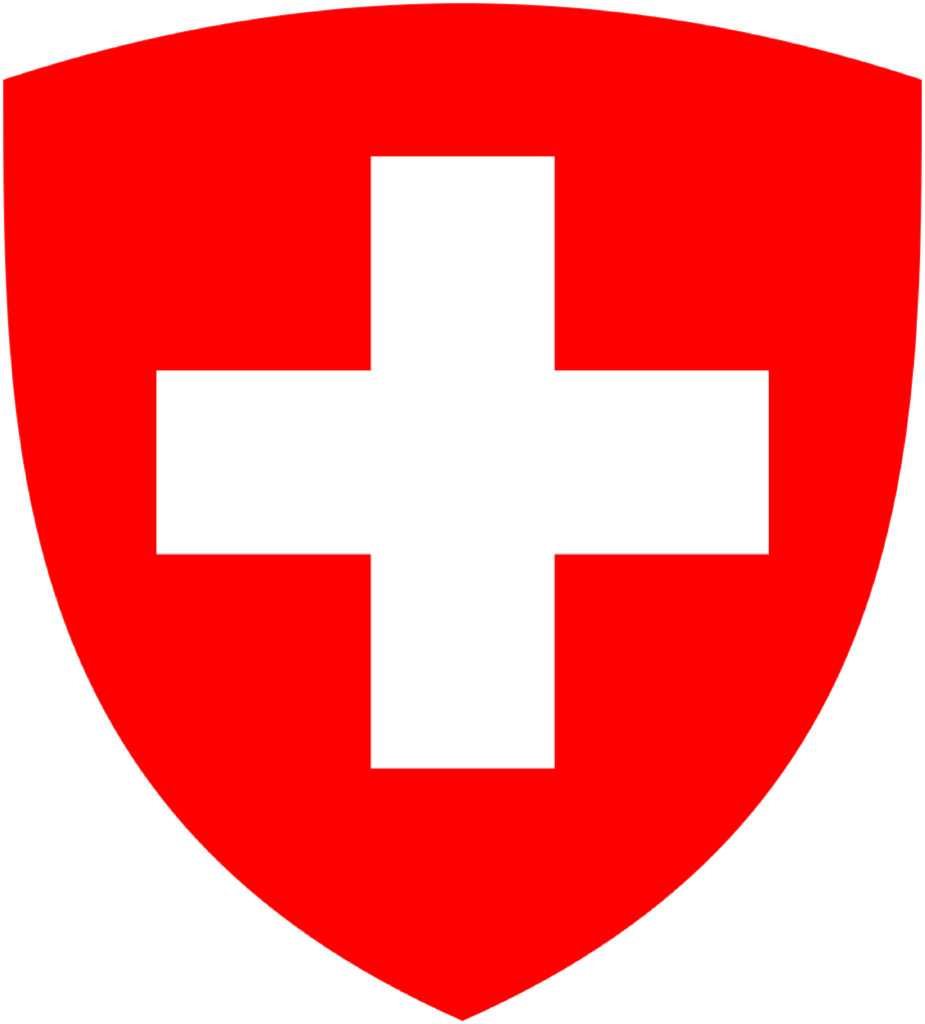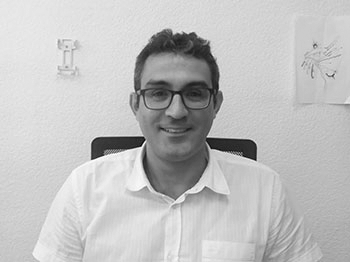Takeaways from CORENET’s 4th General Assembly
The 4th General Assembly (GA) meeting, held on November 30th in Madrid (Spain), brought together the CORENET partners for a comprehensive discussion on the advancement of the powerful chemical reservoir computer systems. The consortium had the chance to tour the Metabolomics Platform facilities at the CIAL building, guided by Prof. Alberto Valdes (CSIC).

The meeting began with a welcome opening and the presentation of meeting objectives by Prof. Alberto Valdes representing the National Research Council of Spain (CSIC) and Prof. Andres from Universidad Autónoma de Madrid (UAM). This was followed by a discussion on both, UAM and CSIC’s work progress, the latest results encountered, and future challenges for the project.
Shortly after, the floor was given to PhD Thijs de Jong from Radboud Universiteit (SRU), who shared an update on their latest results on the formose reaction and the recent publication ‘Chemical reservoir computation in a self-organizing reaction network‘. Following this, Prof. Daniel Merkle and Dr. Mehmet Aziz Yirik from the University of Southern Denmark (SDU) covered two key topics: the modelling framework and reservoir computing. Mr Dennis Andersen presented the new tool that is being developed by SDU, showcasing the filtering methods that can be implemented later in the project. The second half of the meeting began with valuable inputs and developments into the reactor technology from Dr. Robert Lovchik, Dr. Katja-Sophia Csizi and Dr. Emanuel Loertscher from IBM Research Europe – Zurich (IBM).
The project management and financial status were then showcased by Ms. Andreia Cruz accelopment Schweiz AG (accelCH), including a selection of the EC Horizon Results Booster services to support CORENET’ upcoming innovation and exploitation activities and to boost the outreach of the project results. The partners received detailed versions of the services to select the options that could be feasible to improve their activities regarding exploitation and innovation.
The launch of the new working group of PostDoc & PhD students was presented by Marcos Sanz from Universidad Autónoma de Madrid (UAM). He will lead this new platform to provide the consortium’s young researchers with opportunities to work together by connecting and collaborating with peers and research groups to exchange their project contributions, spanning fields that include systems chemistry, artificial intelligence, metabolomics, and microfluidics. After that, Ms. Miriam Frances from accelCH presented the project outreach activities implemented and the ones scheduled for the upcoming months, with a focus on #CORENETresearchers WG activities.
The assembly wrapped up with an open discussion led by Prof. Andres, by encouraging all partners to share their thoughts and suggestions for the project’s improvement. Andres highlighted that the work between different groups is becoming more and more integrated, and that all the developments that are being done for each partner are very important to ensure project’s progress and guiding the pathways for the upcoming exploitation activities that can be implemented to guide the project towards its goals!
Read more about CORENET on our core page and stay tuned for news on our most recent activities also via social media: @CORENET_EU




